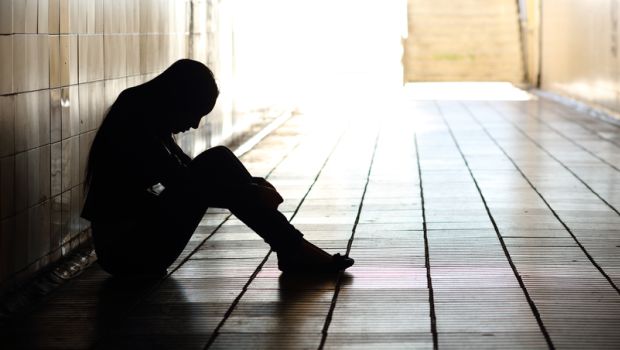A breathing-based yogic meditation practice may help alleviate severe depression in people who do not fully respond to antidepressant treatments, according to a new study led by an Indian-origin scientist.Researchers found significant improvement in symptoms of depression and anxiety in medicated patients with major depressive disorder (MDD) who participated in the breathing technique known as Sudarshan Kriya yoga.The meditation technique, which is practiced in both a group setting and at home, includes a series of sequential, rhythm-specific breathing exercises that bring people into a deep, restful and meditative state: slow and calm breaths alternated with fast and stimulating breaths.
"Sudarshan Kriya yoga gives people an active method to experience a deep meditative state that's easy to learn and incorporate in diverse settings," said Anup Sharma, research fellow at University of Pennsylvania, who led the study.Past studies suggest that yoga and other controlled breathing techniques can potentially adjust the nervous system to reduce stress hormones.In the study, researchers enrolled 25 patients suffering from MDD who were depressed, despite more than eight weeks of antidepressant medication treatment.The medicated patients were randomised to either the breathing intervention group or the "waitlist" control group for eight weeks.During the first week, participants completed a six-session programme, which featured Sudarshan Kriya yoga in addition to yoga postures, sitting meditation and stress education.For weeks two through eight, participants attended weekly Sudarshan Kriya yoga follow-up sessions and completed a home practice version of the technique.Patients in the Sudarshan Kriya yoga group showed a significantly greater improvement in Hamilton Depression Rating Scale (HDRS) scores compared to patients in the wait list group.HDRS is the most widely used clinician-administered depression assessment that scores mood, interest in activities, energy, suicidal thoughts and feelings of guilt, among other symptoms.With a mean baseline HDRS score of 22.0 (indicating severe depression at the beginning of the study), the group that completed the breathing technique for the full two months improved scores by 10.27 points on average, compared to the wait list group, which showed no improvements.Patients in the yoga group also showed significant mean reductions in total scores of the self-reported Beck Depression (15.48 point improvement) and Beck Anxiety Inventories (5.19 point improvement), versus the wait list control group.Results suggest the feasibility and promise of Sudarshan Kriya as an add-on intervention for MDD patients who have not responded to antidepressants, researchers said.The study was published in the Journal of Clinical Psychiatry.(Except for the headline, this story has not been edited by NDTV staff and is published from a syndicated feed.)
"Sudarshan Kriya yoga gives people an active method to experience a deep meditative state that's easy to learn and incorporate in diverse settings," said Anup Sharma, research fellow at University of Pennsylvania, who led the study.Past studies suggest that yoga and other controlled breathing techniques can potentially adjust the nervous system to reduce stress hormones.In the study, researchers enrolled 25 patients suffering from MDD who were depressed, despite more than eight weeks of antidepressant medication treatment.The medicated patients were randomised to either the breathing intervention group or the "waitlist" control group for eight weeks.During the first week, participants completed a six-session programme, which featured Sudarshan Kriya yoga in addition to yoga postures, sitting meditation and stress education.For weeks two through eight, participants attended weekly Sudarshan Kriya yoga follow-up sessions and completed a home practice version of the technique.Patients in the Sudarshan Kriya yoga group showed a significantly greater improvement in Hamilton Depression Rating Scale (HDRS) scores compared to patients in the wait list group.HDRS is the most widely used clinician-administered depression assessment that scores mood, interest in activities, energy, suicidal thoughts and feelings of guilt, among other symptoms.With a mean baseline HDRS score of 22.0 (indicating severe depression at the beginning of the study), the group that completed the breathing technique for the full two months improved scores by 10.27 points on average, compared to the wait list group, which showed no improvements.Patients in the yoga group also showed significant mean reductions in total scores of the self-reported Beck Depression (15.48 point improvement) and Beck Anxiety Inventories (5.19 point improvement), versus the wait list control group.Results suggest the feasibility and promise of Sudarshan Kriya as an add-on intervention for MDD patients who have not responded to antidepressants, researchers said.The study was published in the Journal of Clinical Psychiatry.(Except for the headline, this story has not been edited by NDTV staff and is published from a syndicated feed.)
Advertisement








